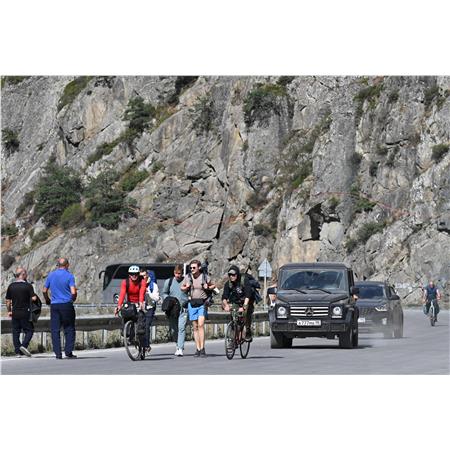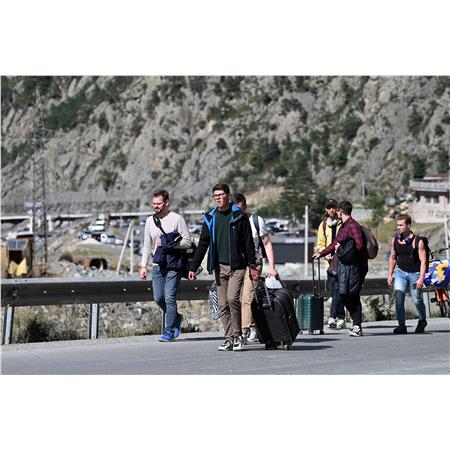Moscow said Tuesday it will not request the extradition of Russians travelling abroad to avoid being called-up to fight in Ukraine, after thousands of military-aged men crossed into neighbouring countries.
"The Russian ministry of defence has not sent any request to the authorities of Kazakhstan, Georgia, or any other country for the alleged forced return to Russian soil of Russian citizens, and it is not planning to do so," The Ministry said in a statement.
Neighbouring countries have seen Russians arriving en masse since the draft was announced last Wednesday, with hours-long queues at border crossings.
On Tuesday, Central Asian nation Kazakhstan said around 98,000 Russians entered the country since Wednesday.
Kazakh President Kassym-Jomart Tokayev vowed to protect the safety and welfare of Russians fleeing a "hopeless situation" on Tuesday.
Russians have also headed to the neighbouring Black Sea nation of Georgia, which saw the number of Russians arriving daily nearly double since the mobilisation announcement.
On Tuesday the local interior ministry in a Russian region that borders Georgia said the situation at the border was "extremely tense".
The ministry added that a mobile mobilisation office will be set up at the border in the "near future".
It took Vsevolod four days to drive from Moscow to Russia’s southern border with Georgia. He had to abandon his car at one point and continue on foot.
On Tuesday, he finally finished his 1,800km (1,100-mile) journey and crossed the frontier to escape being called up to fight in Russia’s war in Ukraine.
“At 26, I do not want to be carried home in a zinc-lined [coffin] or stain [my] hands with somebody’s blood because of the war of one person that wants to build an empire,” he told the Associated Press, asking that his last name not be used because he feared retaliation from Russia.
He was one of the more than 194,000 Russian nationals who have fled to neighbouring Finland, Georgia, and Kazakhstan – most often by car, bicycle or on foot – in the week since President Vladimir Putin announced a partial mobilisation of reservists.
The mass exodus of men – alone or with their families or friends – began on September 21, shortly after Putin’s address to the nation, and continued all this week. Early on, they snapped up airline tickets, which spiked in price on the few airlines still flying out of Russia. But the rest had to gas up their cars and join the long lines snaking on roads towards the borders.
According to the online service Yandex Maps, the traffic jam leading to Verkhny Lars, a border crossing into Georgia from Russia’s North Ossetia region, stretched for about 15km (nine miles) on Tuesday. Social media showed hundreds of pedestrians lining up at the checkpoint after Russian border guards relaxed regulations and allowed people to cross on foot.


(Agencies)
Leave Comments